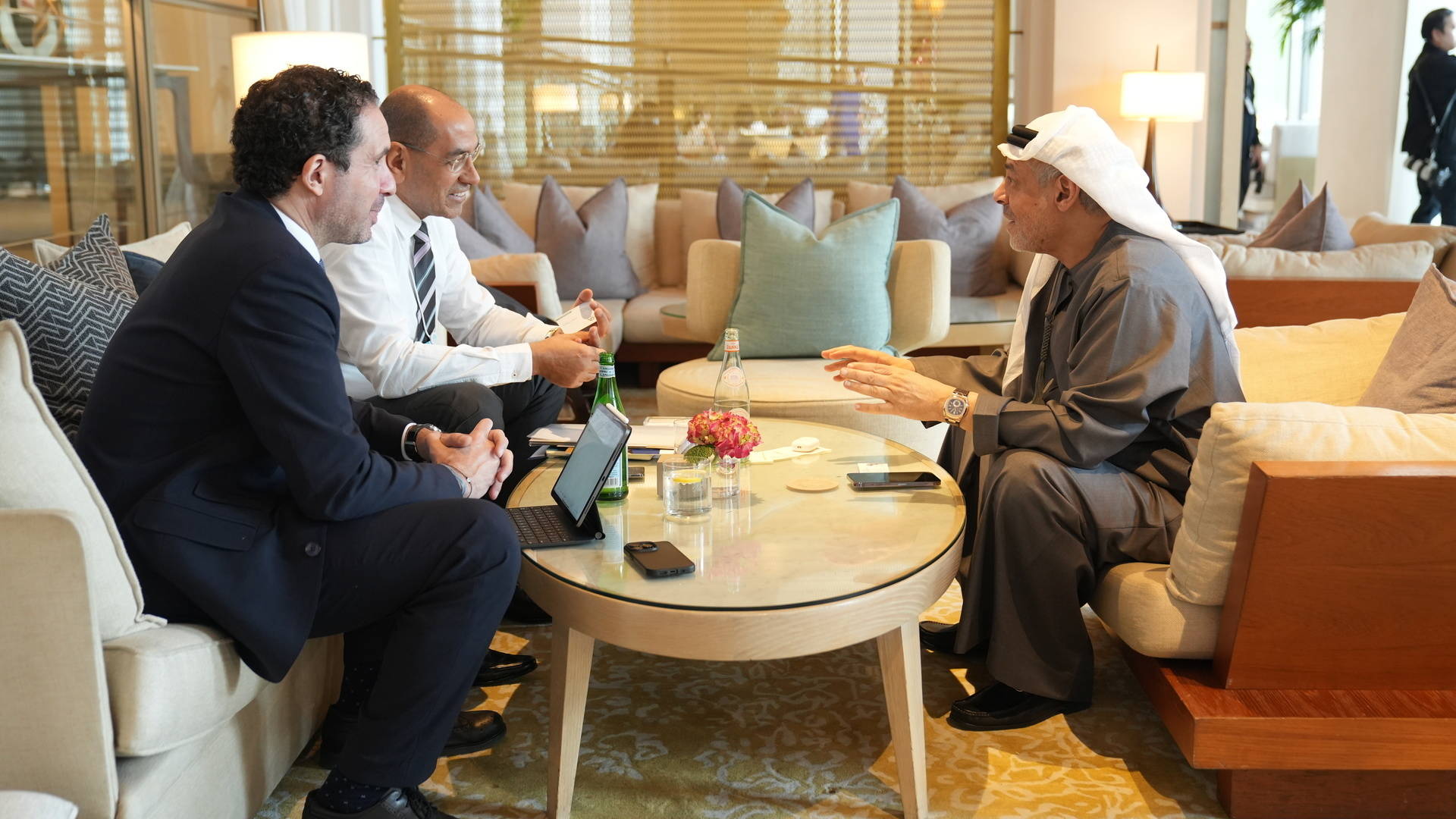We use Cookies. Read our Terms
- News
- Gathering nations to address global challenges
Gathering nations to address global challenges
Combining politics with business an OPEC Fund delegation attends one of the year’s major events in the Gulf region

Sometimes dubbed “Davos in the desert” in reference to the World Economic Forum (WEF), the World Governments Summit in Dubai has established itself as a major international meeting place for policymakers, decision-makers and opinion leaders. This year’s gathering in February 2024 counted International Monetary Fund (IMF) Managing Director Kristalina Georgieva, World Bank President Ajay Banga and World Health Organization General-Director Tedros Adhanom Ghebreyesus among its more than 4,000 delegates and speakers. WEF founder Klaus Schwab, of course, also took part.
The conference took place under the theme “Shaping Future Governments” and the conversation involved governments, international organizations, thought leaders, and private sector leaders from around the globe. Participants came together to discuss international cooperation and ways to enable governments to identify innovative solutions for future challenges.
Leaders agreed that the rapid progress in artificial intelligence technologies has become a pivotal point in preparing for the future, emphasizing the necessity of establishing strategies for this transformative wave. Participants called for setting positive frameworks that help benefit from this technology.
United Arab Emirates Minister of Cabinet Affairs and WGS Chairman Mohammed al-Gergawi stated that US$17 trillion was the cost of disputes, conflicts and violence around the world last year alone. He said six percent of this number could cover the cost of major challenges facing humanity in one year. “It could eliminate hunger and literacy, treat cancer and provide clean water. Imagine what could be achieved if we invested more in addressing other challenges facing humanity,” he said.
Among the illustrious guests was an OPEC Fund delegation led by President Abdulhamid Alkhalifa, which also included Vice President, Finance Tarek Sherlala, and Vice President, Private Sector Tareq Alnassar. They used their mission to engage in numerous meetings with global leaders representing partner countries, international organizations and leading businesses.
Among President Alkhalifa’s first bilateral meetings was a conversation with the Minister of Finance of Somalia, Bihi Iman Egeh. The country reached an agreement with the IMF in December 2023 and is making progress in stabilizing its economy. To date, the OPEC Fund has approved US$40 million in loans for Somalia, which has also benefitted from 13 national grants worth US$4.4 million and 24 regional grants for US$47.7 million.
In a panel on the economic development prospects for Africa and Eurasia President Alkhalifa said: “As globalization changes, the Afro-Eurasian region is likely to experience further interconnectedness in trade, finance and technology. This will enhance economic collaboration but also exposes the region to external shocks.” In the face of new challenges the OPEC Fund remains committed to lending its support, he emphasized: “The OPEC Fund has historically been a solid partner helping support regional collaboration efforts across the Afro-Eurasia region.”
In addition to a series of interviews with leading international and regional media organizations such as Dubai TV, Asharq Bloomberg, CNBC Arabia and the United Arab Emirates’ news agency WAM, the OPEC Fund head also engaged in formal and semi-formal bilateral meetings, including with World Bank President Banga. In his media engagements the President reiterated the OPEC Fund’s long term commitment to the Sustainable Development Goals (SDGs).
Meanwhile, Vice President Sherlala spoke on a panel exploring the world after 2030. Recent assessments have warned that the delivery of the Sustainable Development Agenda is seriously behind schedule, with only 12 percent of the SDGs currently on track. Mr. Sherlala advocated evolving thinking about the SDGs as public goods and mobilizing “the huge productive power of the private sector” for their delivery.
Private sector engagement also played an important role in the activities of the OPEC Fund delegation at the Summit. President Alkhalifa met with Mohamed Jameel Al Ramahi, CEO of the renewable energy company Masdar, and Hatem Dowidar, CEO of the telecoms firm Etisalat. In addition, Vice President Alnassar spoke with Hussain Al Nowais, Chairman of the clean energy provider AMEA Power. “We had really good and substantive meetings and we very much hope to build on this when we mark our 25th anniversary of private sector and trade finance operations later this year,” Vice President Alnassar said.